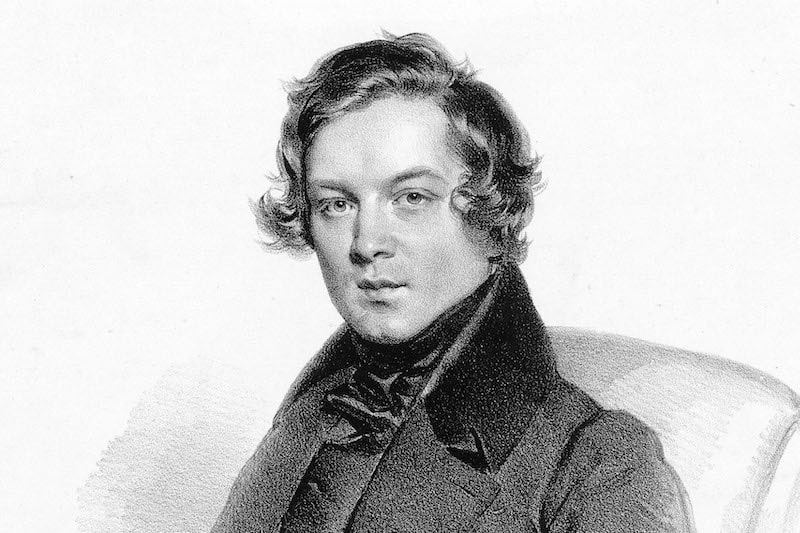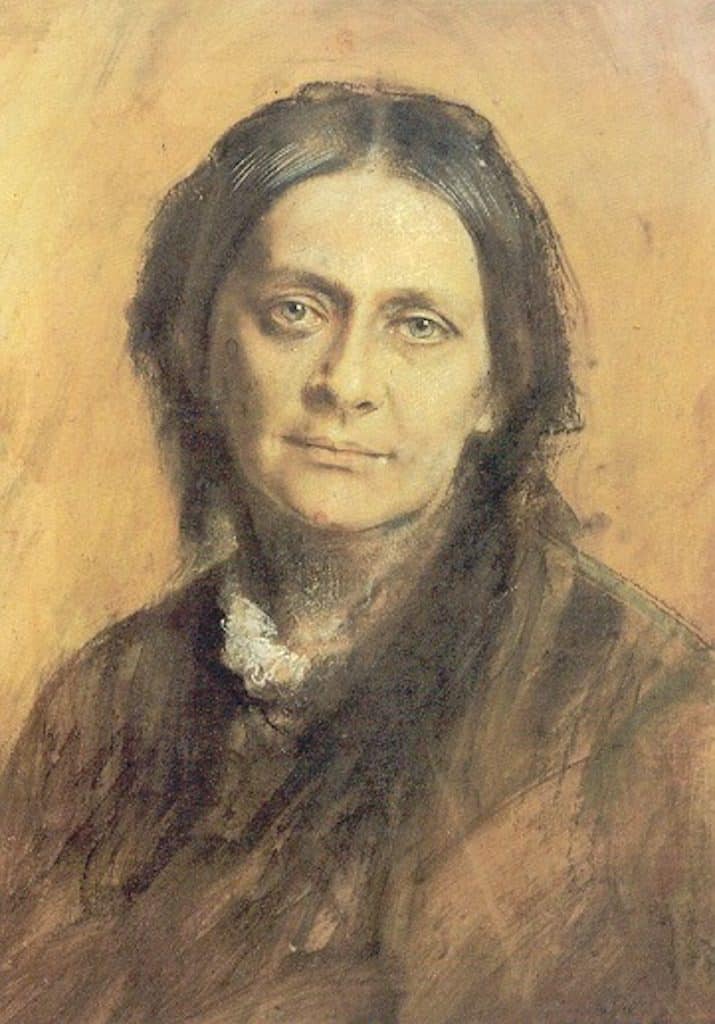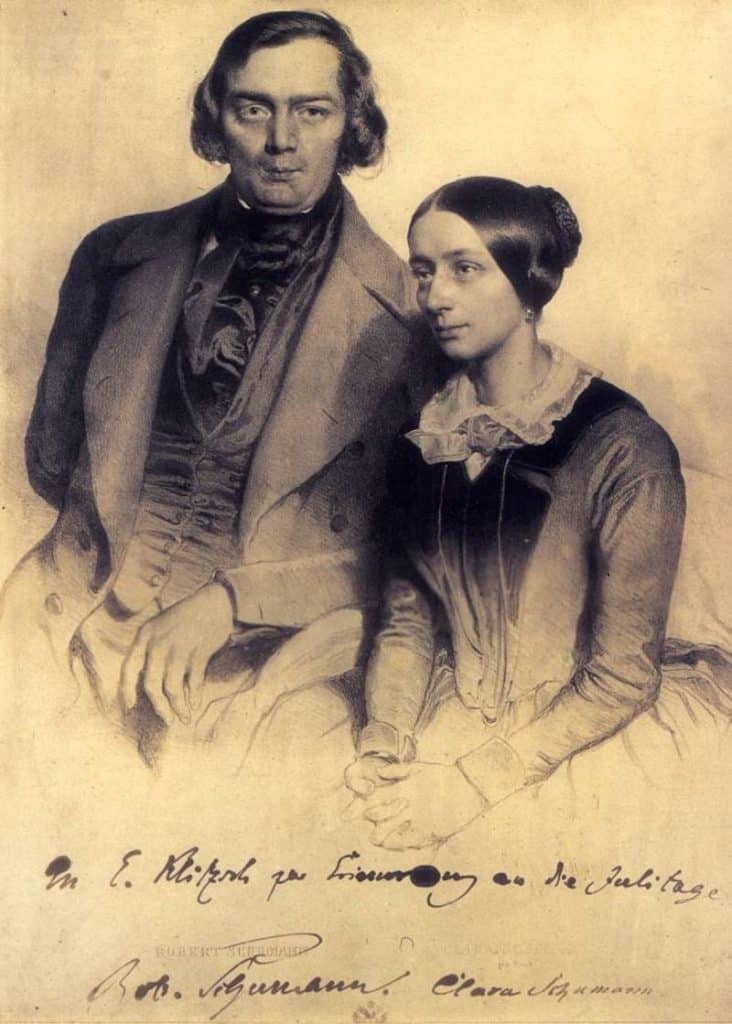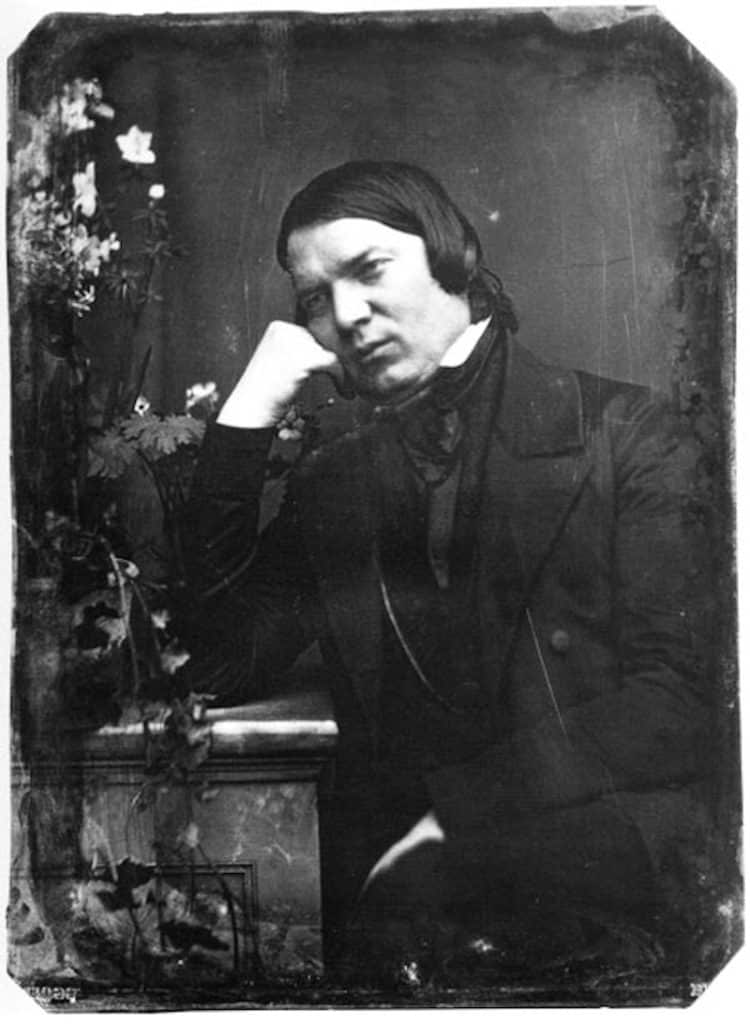Often compared to Mozart, Robert Schumann was one of the leading romantic era composers, a music critic, and an accomplished pianist in the early 1800s.
He was best known for his romanticized music style where he poured out his heart and soul into his works. Schumann’s complex style of creating music has often been called “bipolar” by musical theorists and psychologists alike. Musical historians still reference his work today as an example of some of the best works of all time.
Much has been known about this musician, but here are 10 more interesting facts about Robert Schuman you probably didn’t know:
1. He quit law school to study music

Despite his obvious affinity for music, Schumann’s family didn’t take his career as a virtuoso pianist seriously.
After completing high school in 1828, his family demanded that he go to law school instead. He complied for a short period, but eventually, Schumann quit law school and devoted his life to studying music full time.
He started out as a pianist under the tutelage of German musician Friedrich Wieck. However, he ended up a composer when a permanent hand injury kept him from playing the piano.
2. He created a new genre of music
Sources credit Schumann with creating the genre of Chamber Music when he introduced his piece the “Piano Quintet” in 1842.
The “Piano Quintet” is the first known musical work of its kind to use a string quartet with piano.
Schumann dedicated the song to his wife Clara, and it was first performed by Felix Mendelssohn on piano.
3. His wife was also a pianist and inspired many of his popular works

Schumann was originally engaged to another woman when he met the love of his life, Clara Wieck, in 1835. They eventually married in 1840 after a lengthy legal dispute about their engagement.
Clara became popular as Schumann’s wife, but she was one of the most famous female composers and a talented musician in her own right. She was an accomplished pianist, and she also composed and taught music.
In fact, it has been said that Clara shaped many of Schumann’s most popular works, and she had her own musical career as a concert pianist that spanned 61 years.
4. There was controversy surrounding his marriage

Schumann met his wife Clara Schumann when she was only 13 years old. His piano teacher, Friedrich Wieck—who happens to be Clara’s father—originally introduced them.
As we mentioned, Schumann had a fiancée, Ernestine Von Fricken, before falling in love with Clara when she was 15. He broke off his engagement with Ernestine to pursue a relationship with Clara.
When he asked Friedrich Wieck for his daughter’s hand in marriage, Friedrich petitioned the courts in 1837 to keep him from marrying Clara.
Schumann fought for his right to marry the love of his life in court. They eventually married and stayed together until his death.
5. Schumann suffered from serious bouts of mental illness

Historians say that Schumann suffered from dissociative identity disorder and had multiple personalities. Psychologists believed that each of his personalities created a distinct style of music.
Some records say he may have suffered from compounding mental illnesses, including dementia praecox, which we know today as “schizophrenia.” He also suffered from severe depression and anxiety with recurring panic attacks.
Schumann even attempted to commit suicide on at least three separate occasions in the ten years between 1830 and 1840.
In 1854, Schumann was eventually admitted to an insane asylum at his own request. According to the medical staff at the facility, Schumann attempted to drown himself the very next day in another attempt to commit suicide while in the asylum.
6. He used music as a way of self-expression
Schumann was an introvert. His deep introspections and real-life examples from his own personal experience inspired much of Schumann’s work.
Some of his most popular pieces, like the “Toccata” (1829-32) showcased the depth of his character through his rhythmic music.
His music and his life went hand-in-hand as he composed heart-wrenching pieces that conjured up vivid imagery for listeners. Psychologists would later say that his music possessed a “bipolar” quality that gave the music its unique style.
7. Schumann’s multiple personalities were “shown” in his music
One of his most famous works is the “Carnaval” where he uses one of his personal experiences to create 22 short pianistic works in 1834.
The piece features references to their activities at the Carnival Festival and even uses the names of his close friends Paganini and Chopin as movements as a musical theme.
Historians say other names referenced throughout the piece may have been the names Schumann had given to his other personalities.
8. He was a family man

Despite being deeply involved in his musical career, Schumann and his wife had a robust family life.
They had eight children together. However, their fourth child, Emil, tragically died at only one year old.
People close to Schumann say that he was devoted to his wife and children during his brief life. He spent most of his time surrounded by his family when he wasn’t composing music or battling mental illness.
9. He died young
Schumann was born in 1810 and died when he was only 46.
After struggling with mental illness for most of his life, starting at least around 18, Robert Schuman died in an insane asylum two years after being admitted to a private facility in 1856.
The cause of his death, however, is unclear. It is believed that he contracted syphilis during his student days, which remained latent for years.
Some sources say he died of mercury poisoning, which was a common treatment for syphilis at that time. However, an autopsy report revealed that he died of complications from an intracranial (brain mass), which is said to have also caused his many neurological problems.
10. His mental illness made him more popular
Psychiatrists paid closer attention to Schumann’s music after his diagnosis of mental illness became more widely known.
They used it as a tool for psychiatric diagnosis and studying his bipolar moods. His doctors even believed the sharp tempo changes and the “bipolar” quality of his music were indicative of Schumann’s mental state.
This inspired musicians to conduct further studies of Schumann’s musical compilations.
Wrapping Up Our List Of Lesser-Known Facts About Robert Schumann
Schumann is famous for inspiring and creating some of the greatest musical works in history. Some of his most famous works include the “Piano Quintet,” “Carnaval,” and “A Poet’s Love.”
From an early age, he had ongoing issues with mental health that went undiagnosed for most of his life. Schumann’s mental illness and its effects on his music are topics that are still widely debated today.
Historians credit Schumann with ushering in new genres of music and changing the psychological perspective of musicians.
